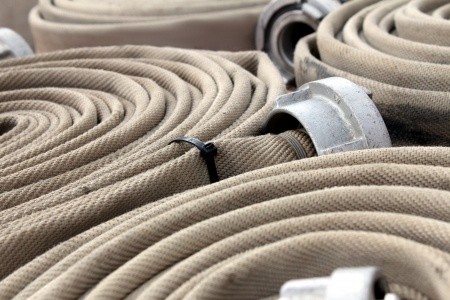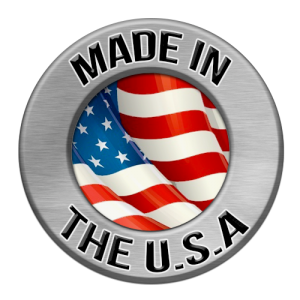The term “surplus fire hose” can have several meanings. Most commonly, people and suppliers use it to refer to “used fire hose.”
Where Does the Surplus or Used Fire Hose for Sale Come From?
Many large cities, with bigger budgets, replace their fire hose on a more regular basis. While still in service, fire hose must have no holes or burns, etc. and be tested per NFPA 1962 on an annual basis. When these larger departments replace their hoses, the “old” fire hose still has life left in it and can be resold as surplus fire hose.
Often, surplus fire hose is purchased by smaller, volunteer or rural fire departments that have little or no budget. While surplus fire hose can be a good deal for these departments, it can also turn into a headache that results in losing money, not saving it.
A True Story of When Surplus Fire Hose Wasn’t a Good Deal
On one occasion, we had a small fire department bring us 28 lengths of hose that they bought from a surplus fire hose vendor. They got double jacket hose, but it had a polyurethane tube, versus being EPDM rubber-lined. While they were good hoses, the fire hose material was actually designed for high-rise buildings because it was built lighter and was easier to carry up flights of stairs. There weren’t even many high-rise buildings in this small department’s service area! But the big problem was the design of the couplings. The department wanted aluminum couplings, which they got, but the thread pattern would not work with their equipment. They bought replacement couplings, then discovered that they could not put them on the hoses since they didn’t have the right equipment to do so.
They bought the surplus fire hose and probably got a pretty good deal on it, but then they bought couplings and probably paid a lot for them. Then they had to bring them to us and had to pay for us to install the couplings on the hoses. All in all, it may have been just as cheap, if not cheaper, for them to buy new fire hose in the first place. Did they even “need” double jacket? Or was it such a “good deal” that they bought it anyway? If they only needed single jacket, they could have saved even more money buying new.
Many small departments have bought surplus fire hose and ended up with a pretty good deal, yet many others have ended up in this department’s shoes, losing money that they didn’t have in the first place. We hate to see small departments on shoestring budgets end up in situations like this.
How to Purchase Fire Hose for Your Department
- Know exactly what type of fire hose and couplings you need. If you don’t, make sure the supplier you’re dealing with has the knowledge to help you choose the right equipment.
- Ask about the warranty. When you purchase from Rawhide, you get a one-year warranty from us, plus a 10-year warranty from the hose manufacturer (cooling hose manufacturers offer 5- to 10-year warranties).
- Make sure surplus fire hose meets performance standards. If you’re purchasing surplus fire hose, make sure it has been tested per NFPA 1962. If it hasn’t, you don’t know what you’re getting, and you could be risking safety and performance.
At the beginning of this post, we mentioned that there are several meanings for the term surplus fire hose. The other meaning is the type of surplus fire hose we sell “on special” or as “hot buys.” This surplus fire hose is brand-new fire hose that could be overstock or overruns from a manufacturer. We purchase it at a discount price and pass those significant savings on to you.
Have questions about where to buy fire hose and which style hose is right for your department? Rawhide Fire Hose is here to help. Contact us today.


